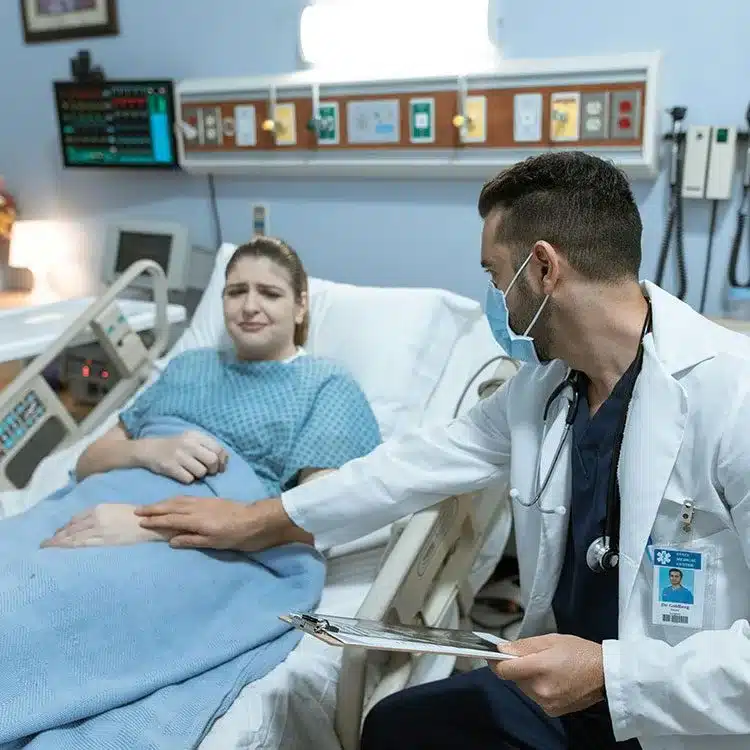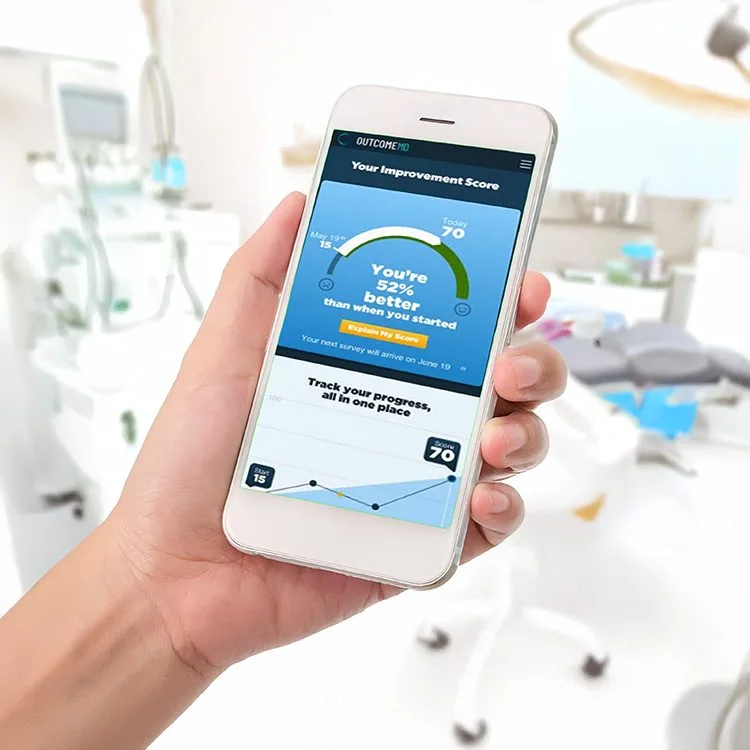Deliver patient-centered surgical care
Surgery isn’t the end of treatment – it’s the beginning of recovery. To get the best results, you need a clear view of how patients are healing in the days, weeks, and months that follow.
OutcomeMD gives surgeons, hospitals, and surgery centers the tools to track recovery in real time. With patient-reported outcome measures (PROMs), patients share their experiences – such as pain, fatigue, nausea, and mobility – so you can detect complications early, adjust treatment plans quickly, and guide them toward better health.
By aggregating these responses and providing correlations and analyses of the data across thousands of patients, our Patient Experience Data Network™ informs your best decisions.
The outcome: fewer complications, faster recoveries, and healthier patients.


PROMs deliver better clinical assessments
Every surgery is different. Every recovery is, too. PROMs provide continuous, standardized feedback that helps you see beyond clinical follow-ups and into the patient’s real-world healing process.
OutcomeMD delivers insights across a wide range of surgical procedures, including:
- Appendectomy
- Cesarean section
- Cancer-related surgery
- Cataract surgery
- Cholecystectomy
- Gastrointestinal surgery
- Heart surgery
- Hernia repair
- Hysterectomy
- Joint replacement
- Trauma surgery
- Transplants
For surgical patients, closure is just the beginning
Recovery doesn’t happen in the OR – it happens at home, day by day. PROMs capture how patients are truly doing in between visits, giving you real-time visibility into pain, mobility, energy levels, and potential red flags. And when you combine their individual responses with those of thousands of others with similar issues in our data network, you get the benefits of massively accumulated experience.
OutcomeMD strengthens communication, builds patient trust, and keeps the care team aligned – so patients heal faster, with fewer setbacks.
- Prevent complications with earlier detection
- Personalize care plans based on the patient’s lived experience
- Set realistic expectations that keep patients engaged in their recovery


Put patients first, success follows
When outcomes improve, reimbursements improve too. By delivering better care, you improve both patient health and practice performance.
OutcomeMD helps surgical practices:
- Automate follow-up monitoring with validated PROMs
- Document measurable progress for value-based reimbursement
- Pursue approvals for previously non-reimbursable codes
- Measure patient success to support increased payment per code
New revenue source – valuable PROM data
- FDA and EMA recognize PROMs as valid measures of efficacy
- Real-world data complements clinical trials and delivers insights that inform clinical research leading to improved treatments
- PROMs provide insights that enable informed treatment changes
- De-identified PROM data trains AI models for risk prediction and patient stratification
- You receive a share of the licensing fees from biopharma


Helping patients shape their path to recovery
OutcomeMD continuously monitors patient-reported outcomes and benchmarks progress against established recovery standards. This approach reduces complications, ER visits, and repeated surgeries – while ensuring successful recoveries are reinforced and celebrated.
The power of our Patient Experience Data Network™ ensures that you will be informed by the experiences of thousands of others each and every time.
By combining clinical results with real-world patient feedback, you deliver safer surgeries, stronger recoveries, and better quality of life.
FAQs
How does OutcomeMD support surgeons with follow-up care?
PROMs provide direct, structured insights into how patients are healing, which improves follow-up care and helps tailor ongoing treatment plans.
What advantages do PROMs offer beyond individualized care?
PROMs can assess the cost-effectiveness of surgical procedures, support value-based reimbursement models, and provide benchmarks to compare outcomes across interventions.
How do PROMs impact surgical outcomes?
By tracking progress against established benchmarks, PROMs help reduce complications, ER visits, and readmissions while driving faster, more successful recoveries.
How does OutcomeMD enhance patient-centered care?
PROMs capture the patient’s perspective on pain, function, and recovery – giving surgeons the insights needed to tailor care and set realistic expectations.
Can OutcomeMD increase surgery-related reimbursements?
PROMs provide the regulatory-grade evidence insurers require, enabling higher reimbursement rates and approvals for follow-up care.